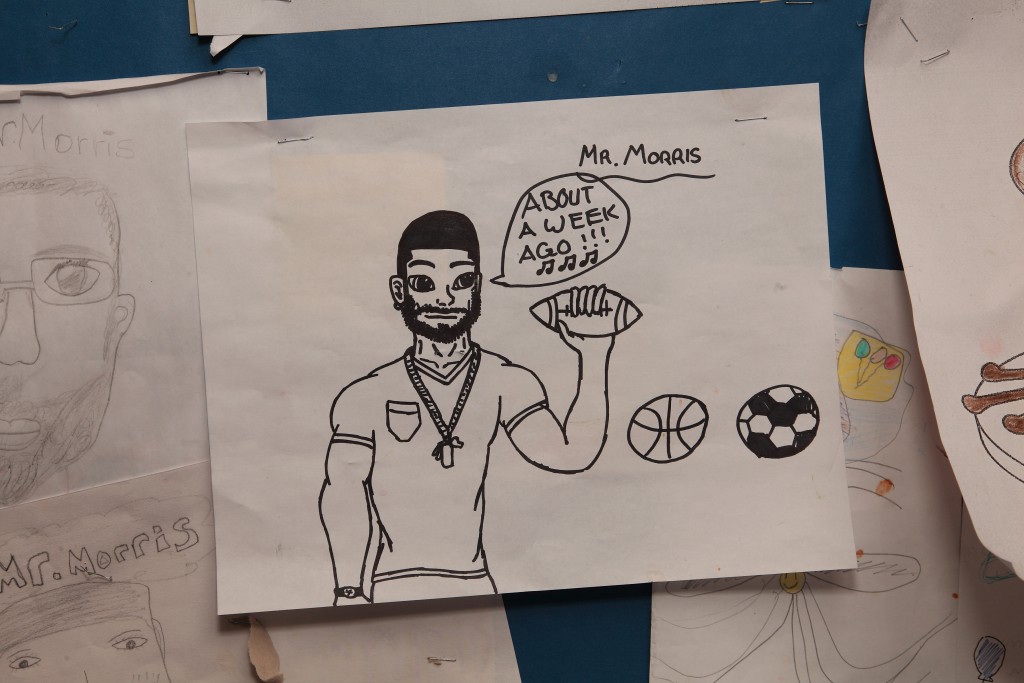As a young, black, male teacher, the topic of developing an identity is one of tremendous importance. Identity, forming your own persona and style, is one of the most, if not the most, crucial foundational aspects for any young teacher. For young black males entering into the teaching profession, it takes on additional importance. Developing an authentic black teacher identity is one part political and one part needed to maintain sanity. All young teachers enter the profession with a “blank slate.” We may adopt certain teaching styles and approaches towards our students, strategies for management, and even catch phrases and words that consciously shape how we want to be perceived. But our fundamental identity as a teacher is shaped in experiences within the school by students and colleagues.
Communication with peers inside the school, like fellow teachers and principals, shapes your “teacher identity.” But the social networks you maintain with friends, family and your community also have an impact on the persona you bring into the classroom. Any person who knows how much you value your job and profession helps you assemble your teacher presence. For me, this is a frightening but embracing thought. By throwing myself into education, I am eager to embrace the change in me as a man, a young professional, and a teacher. I look forward to one day, five or maybe ten years down the road, reflecting back and saying, “Boy, I had no idea what I was doing in my first year, but I was heading on the right path. I was clueless to how my style, speech, and dress would be read, but I somehow molded myself into the educator and man I wanted to become.” However, this idea of “being shaped” frightens me because I do not want the education profession to gradually change me into some forged persona; some remnant of what I used to be and what I used to believe in. Five or ten years down the road, I don’t want to look back on my time now and say, “Boy, those first years of teaching were the times when I was still real; still myself, and regardless of my naivety or inexperience, I had a sincere connection with my students and I was true to myself.” The dualistic path of becoming Mr. Morris while still forging who Matthew R. Morris will be a treacherous road.
One’s perspective, maturity, and outlook on life will inevitably change through practicing the art of teaching. But as a young teacher, it is imperative not to let your identity melt away into the genericness of teacherhood. This paradigm is especially true for any person working in a setting where they are clearly the minority, in whatever fashion that minority status may arise. It may be gender based, race based, financially grounded, or geographically induced. Whatever the cause for the conscious (or deep-rooted sub-conscious) minority feeling that may fester in you, make sure you do whatever it takes to stomp it out by refusing to conform to the masses. One of the strongest lessons a minority teacher can bring to education is an awareness and critical eye for difference. A textbook cannot teach a lesson on equity as well as the simple presence of a minority educator can.
I am a young, black male working in a profession largely dominated by older, white females. My identity and essentially everything about me clashes with the norms of “elementary teaching” almost on a daily basis. I feel the friction every day. If it does not confront these notions on a conscious and materialistic level, it surely hits me through an internalistic thread. And lately, subdued by the pressures of a traditional establishment, I have been finding myself sinking into the muddy waters of conformity. And this is unacceptable since notions of “whiteness” and “privilege” pervade our society everywhere we turn. Fighting these so-called “universalities” is part of the reason why I became a teacher in the first place. Wearing my earrings and not being afraid to expose my tattoos is a matter of tangible resistance. By standing up and saying, “I will not change, I deserve to be here and I am who I am, doing a job that I am qualified to do and relating to my students in a way the perhaps others never could,” I am offering students the opportunity to experience difference firsthand. And that is an experience, especially in these times, that needs to be offered and taken seriously.
[share title=”Share this Post” facebook=”true” twitter=”true” google_plus=”true”]

